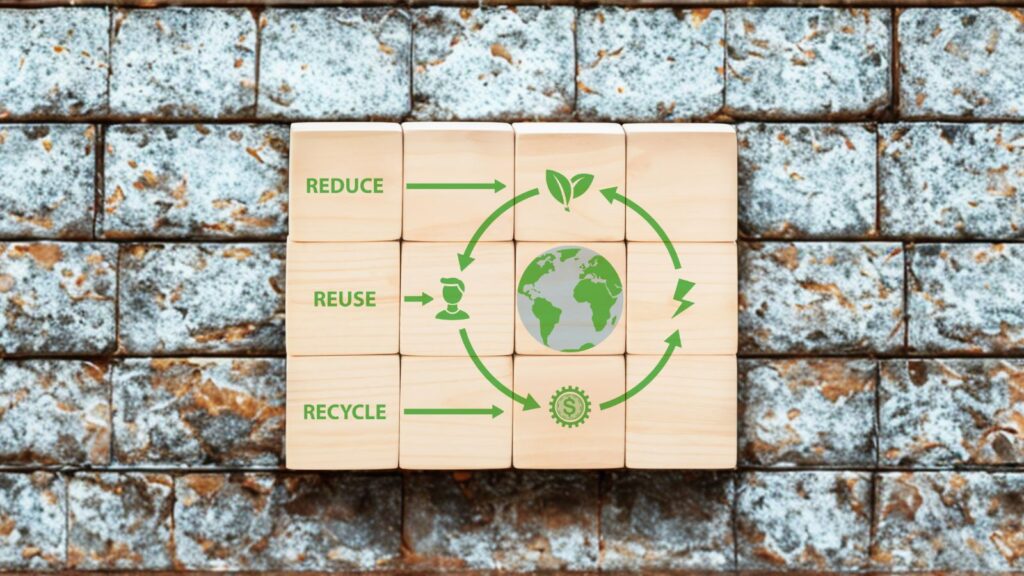In today’s fast-paced world, a lot of us are observing for fast fixes when it comes to food and health. But real, lasting change doesn’t come since crash diets or skipping meals. It comes since structure Sustainable eating habits that support your body every day. Sustainable eating means selecting foods and routines that are good for your health, your situation, and your future. It’s about making a healthy bond with food that leads to long-term health results.
When you eat in a Sustainable way, you’re not just thinking about what’s on your plate today—you’re thoughtful about how your selections will affect your body, your mind, and even the planet in the long run. In this blog, we’ll explore what Sustainable eating means, the benefits it offers, how to get started, and the common errors to avoid. Let’s begin this journey toward a well lifestyle together.

What Are Sustainable Eating Habits?
Sustainable eating habits are humble, everyday food selections that help you stay healthy for the long term. They aren’t almost strict rules or wounding out entire food groups. In its place, they focus on equilibrium, variety, and being mindful of what you eat and where it comes from. These habits are easy to follow and fit into your life without creation you feel stressed or limited.
One of the main parts of workable eating is balanced nutrition. This means eating a mix of dissimilar foods—fruits, vegetables, whole grains, proteins, and healthy fats—to give your body all the nutrients it needs. Avoiding too much sugar, salt, and processed foods is also important. These types of foods can lead to health problems over time.
Extra part of sustainable eating is mindful eating. This means paying attention to what you eat, how much you eat, and how it makes you feel. In its place of eating while watching TV or scrolling on your phone, try to enjoy each bite and listen to your body’s hunger signals.
Eating seasonal and local foods is also a sustainable choice. These foods are often fresher, taste better, and have less impact on the atmosphere. When you buy local, you support farmers in your area and help reduce the pollution caused by long-distance food delivery.
Benefits of Sustainable Eating

Sustainable eating isn’t just good for the situation—it’s also great for your body and mind. When you make smart food selections every day, you start to poster real changes in how you feel. Over time, these minor habits can lead to big developments in your health.
One of the biggest benefits is weight management. When you eat stable meals and avoid overly processed foods, it’s easier to maintain a healthy weight without sensation hungry all the time. You’ll also have more control over cravings and emotional eating.
Sustainable eating gives you extra energy. Whole foods like fruits, vegetables, nuts, and whole grains help keep your blood sugar steady, so you won’t feel tired or sluggish through the day. You’ll also sleep better, which is significant for both mental and physical health.
Extra key benefit is disease prevention. Eating a variety of healthy foods can inferior your risk of heart disease, diabetes, and even some cancers. Antioxidants from fruits and vegetables help fight off harmful substances in your body. Fiber from complete grains supports digestion and keeps your gut healthy.
Your mental health can also recover. Eating well has been linked to well mood, reduced stress, and stronger thinking. When your body feels good, your mind does too.
These are the kinds of long-term health results that make supportable eating worth the effort. You won’t see changes instant, but with constancy, you’ll build a strong foundation for a healthy life.
How to Start and Maintain These Habits
Initial with sustainable eating habits doesn’t have to be hard. Begin with small changes that are easy to manage, and build from there. The key is to be reliable and make choices that work for your lifestyle.
One of the best ways to start is with meal planning. When you plan your meals fast of time, you’re less likely to grab unhealthy snacks or fast food. Make a shopping list that contains fresh fruits, vegetables, lean proteins, and whole grains. Stick to it when you go to the store.
Portion control is extra helpful habit. Eating the correct amount for your body prevents overeating and helps you feel content without being too full. Try using lesser plates and bowls to help control serving sizes without much effort.
Take time to read food labels. Appearance for added sugars, unhealthy fats, and artificial elements. Choose foods with humble elements you can understand. If a food label has too many strange words, it might not be the best choice for your health.
Try to contain more plant-based meals in your week. You don’t have to become a vegetarian, but eating more beans, lentils, vegetables, and whole grains can help your body and the environment. Even one or two plant-based meals per week can make a difference.
Lastly, reduce food waste by using leftovers, storing food correctly, and buying only what you need. Not only does this save money, but it also supports the planet by cutting down on waste.
Mistakes to Avoid
When trying to eat sustainably, a number of people make errors that can hurt their progress. One common error is going too extreme too fast. If you cut out all your favorite foods at once, you may feel frustrated and give up. It’s better to make small changes over time.Structure sustainable eating habits is one of the best things you can do for your body, your mind, and your future. It’s not about being perfect—it’s about creation smart selections every day that support your long-term health results. With stable meals, mindful eating, and a little planning, you can feel healthier, have more energy, and enjoy your meals without guilt or stress.

Structure sustainable eating habits is one of the best things you can do for your body, your mind, and your future. It’s not about being perfect—it’s about creation smart selections every day that support your long-term health results. With stable meals, mindful eating, and a little planning, you can feel healthier, have more energy, and enjoy your meals without guilt or stress.
Recall, change doesn’t happen overnight. Start small, stay consistent, and be kind to yourself. You don’t have to follow a strict diet or give up all your favorite foods. Just take one step at a time and focus on making a lifestyle that works for you.
Conclusion
Structure sustainable eating habits is one of the best things you can do for your body, your mind, and your future. It’s not about being perfect—it’s about creation smart selections every day that support your long-term health results. With stable meals, mindful eating, and a little planning, you can feel healthier, have more energy, and enjoy your meals without guilt or stress.
Recall, change doesn’t happen overnight. Start small, stay consistent, and be kind to yourself. You don’t have to follow a strict diet or give up all your favorite foods. Just take one step at a time and focus on making a lifestyle that works for you.
Ready to Begin Your Healthy Journey?
If you’re ready to take control of your health and start eating better, check out our beginner-friendly healthy diet plans and tips at fitnessmacros.com. We’re here to help you build sustainable habits that lead to real, lasting results—one meal at a time.
